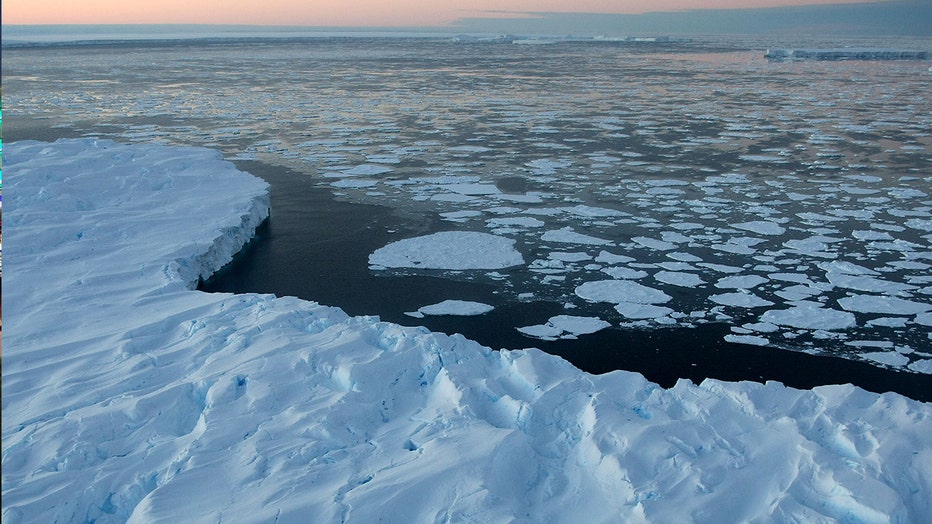'Climate time bomb is ticking': UN report warns world running out of time to reverse effects of climate change

UN climate report says world to get sicker, more dangerous in next 18 years
A U.N. panel published a new report on Feb. 28, 2022, summarizing the latest information on global warming and its effect on people.
INTERLAKEN, Switzerland - Action to prevent and reverse the deadly and devastating effects of climate change around the world must be taken immediately before it’s too late, warned a new United Nations climate change report released Monday.
"Humanity is on thin ice, and that ice is melting fast," U.N. Secretary-General Antonio Guterres said in a video message. "The climate time bomb is ticking, but today’s IPCC (Intergovernmental Panel on Climate Change) report is a how-to guide to defuse the climate time bomb," he added. "It’s a survival guide for humanity."
According to a press release, the IPCC said several effective and feasible options to reduce greenhouse gas emissions and adapt to human-caused climate change are available now, but time is running out.
"In 2018, IPCC highlighted the unprecedented scale of the challenge required to keep warming to 1.5 degrees Celsius (2.7 degrees Fahrenheit)," the release said. "Five years later, that challenge has become even greater due to a continued increase in greenhouse gas emissions. The pace and scale of what has been done so far, and current plans, are insufficient to tackle climate change."

Secretary-General Antonio Guterres speaks at Security Council meeting on the sea-level rise: implications for international peace and security at UN Headquarters. (Photo by Lev Radin/Pacific Press/LightRocket via Getty Images)
In his video message, Guterres said the 1.5-degree Celsius limit is still achievable, "but it will take a quantum leap in climate action."
Lauren Casey, Meteorologist with Climate Central, came on to talk about their report which found that climate change is increasing the frequency, intensity and duration of extreme weather that wreaks havoc on our power grid.
The IPCC report said that more than 100 years of burning fossil fuels and unequal and unsustainable energy and land use have led to global warming of 1.1 degrees Celsius (2 degrees Fahrenheit) above pre-industrial levels.
"This has resulted in more frequent and more intense extreme weather events that have caused increasingly dangerous impacts on nature and people in every region of the world," the press release noted.

?Fingerprints? of climate change marking increasingly extreme weather events, research suggests 95
Drought, intense heat waves, exceptional precipitation and record-low sea ice were extreme weather events made more likely by human-caused climate change, according to new research published Monday.
Guterres said he had proposed a plan to the G20 countries, a Climate Solidarity Pact, in which all big greenhouse gas emitters make additional efforts to cut emissions, as well as calling on wealthy countries to mobilize financial and technical resources to support emerging economies in a joint effort to keep the 1.5-degree Celsius goal alive.
"It starts with parties immediately hitting the fast-forward button on their net-zero deadlines to get to global net zero by 2050 – in line with the principle of common but differentiated responsibilities and respective capabilities, in light of different national circumstances," Guterres said.
RELATED: How warm will spring be? NOAA seasonal outlook shows who can pack up those winter coats
President Joe Biden address climate change during a speech in Somerset, MA on Wednesday.
He also noted that the rate of temperature rises in the last 50 years is the highest in 2,000 years, and concentrations of carbon dioxide are the highest in at least 2 million years.

Giant tabular icebergs are surrounded by ice floe drift in Vincennes Bay on January 11, 2008 in the Australian Antarctic Territory. Australia's CSIRO's atmospheric research unit has found the world is warming faster than predicted by the United Natio
Guterres said leaders of developed countries must commit to reaching net zero as close as possible to 2040.
"This can be done," he said. "Some have already set targets as early as 2035."
Guterres stressed that now is the time for G20 members to come together to pool resources, scientific capabilities and technology to make carbon neutrality a reality by 2050.
"Every country must be part of the solution," he said. "Demanding others move first only ensures humanity comes last."

